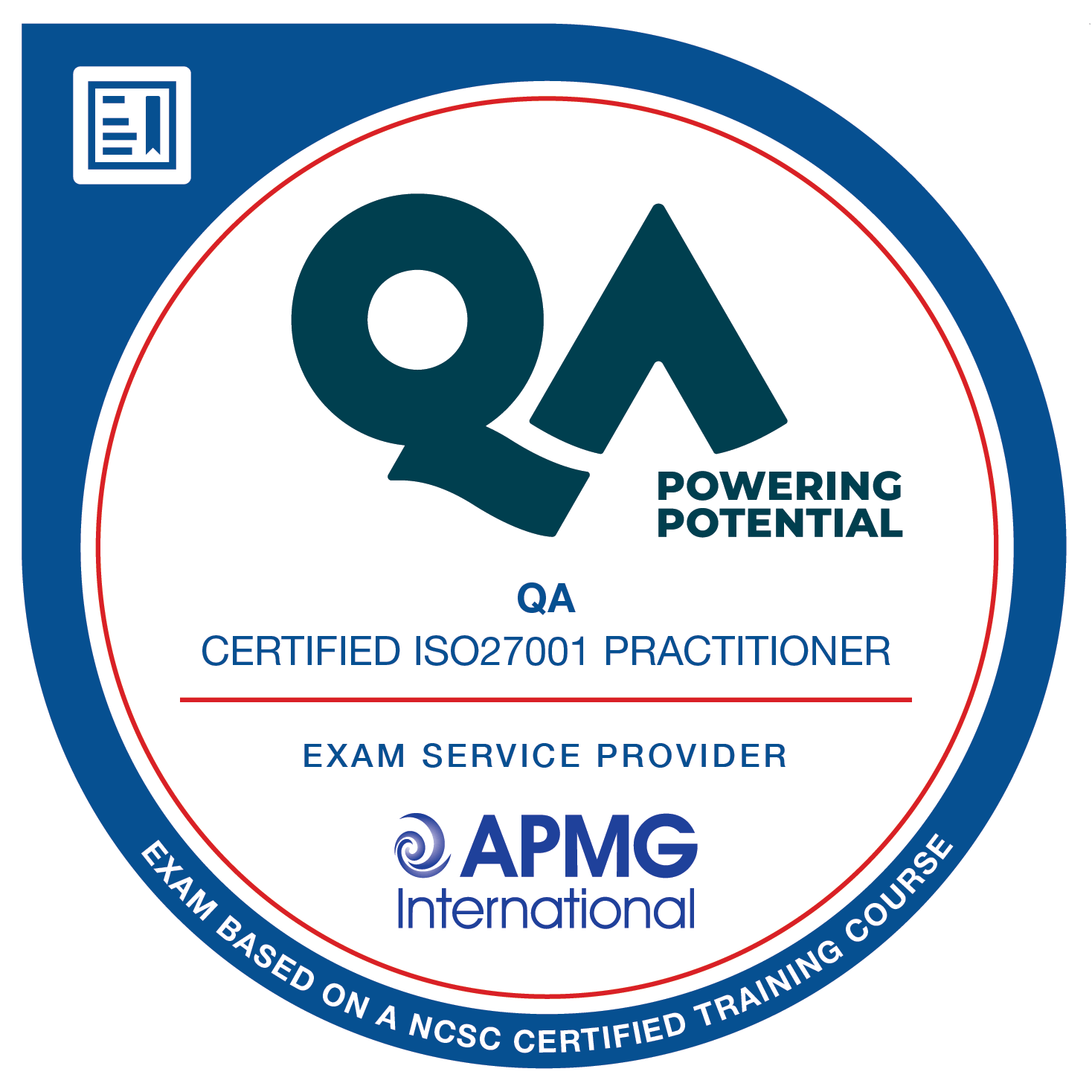This Certified ISO27001 Practitioners training course will provide delegates with the requirements and principles of ISO/IEC 27001, with an awareness of the issues and challenges involved in implementing an information security management system.
This practical course is designed to deliver the delegate with a solid understanding of information security management (ISM) systems as set out in ISO/IEC 27001:2022.
The course will impart the skills to plan, audit and implement an ISO 27001:2022 compliant information security management system (ISMS) audit.
Delegates will receive a voucher to sit an independent APMG certification exam, based upon the materials covered in this ISO27001 Practitioner’s course. Successful exam delegates will be provided with an electronic APMG certificate and digital badge.
Security and IT professionals, those responsible for risk, audit and compliance or project managers responsible for ISO27001 compliance programmes.
There are no pre-requisites for this course.
Day 1:
Day 2:
Day 3:
Day 4:
Exam Information
The exam is a Proctor-U APMG exam for the Certified ISO27001 Practitioner, which will be taken by delegates in their own time after the course.
Delegates will receive individual emails to access their AMPG candidate portal, typically available two weeks post exam.
If you experience any issues, please contact the APMG technical help desk on 01494 4520450.
Exam Format – Online via APMG Proctor Platform (delegates receive a voucher post course)
Objective Testing
4 questions per paper with 20 marks available per question
40 marks or more required to pass (out of 80 available) – 50%
2 hour duration
Closed book

Join our public courses in our Nigeria facilities. Private class trainings will be organized at the location of your preference, according to your schedule.